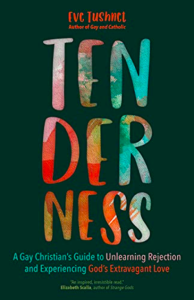A nice easy set of topics to cover, but don’t worry, I’ll be 100% objective.
The assassination of Qasem Soleimani, a major military leader of Iran, has gotten a lot of social media discussing Just War Theory, a branch of philosophy pioneered by St Augustine and which forms a part of the mainstream of Catholic political thought. It has gotten a lot of non-American social media pointing out the self-centeredness of American social media, which has been largely full of morbid jokes about getting drafted—while showing no grief over, or even awareness of, the immense number of innocent foreign lives that American invasions in the Middle East have snuffed out in the last twenty years, and that any military involvement in Iran would assuredly increase. According to some estimates, as many as eighty percent of the Iraqi casualties in that country since 2003 have been civilians. And it has gotten a lot of people both tired and terrified about the prospect of a Third World War, something that could be exponentially more destructive now that at least eight sovereign nations possess nuclear weapons (1).
I’m scared, like a lot of people. Partly for obvious and practical reasons; though I will say that, unless Iran has acquired nuclear capabilities as well and done a magnificent job of keeping them secret, we probably don’t need to fear direct Iranian attacks on American soil. Partly for something like spiritual reasons: the more I look at American foreign policy over the last seventy years, the more I fear that we have become quite simply a self-serving empire that is under God’s judgment, no matter how well-intentioned individual soldiers have been; and God will not suspend that judgment on us forever.
I intend to write a series about Just War Theory and how I think it needs to radically reshape the average American Catholic’s whole approach to politics. But before I do that, I want to issue a serious invitation to, yes, thoughts and prayers.
Thoughts and prayers have come into just disrepute—in the sense that it’s incredibly easy to tell someone who’s in trouble that your thoughts and prayers are with them, without doing anything concrete to help them deal with their troubles (and indeed without thinking about them or praying for them). But quite frankly, deliberate thought and sincere prayer are called for right now. Deliberate thought, i.e., trying to figure out what the facts are and what significance they have, is something that we’re mostly pretty bad at as a species, not because we lack the capacity to think but because it’s much more emotionally satisfying to react, especially when we’re scared or angry. And sincere prayer, i.e., appealing to a mysterious Thing that is that rightness which transcends all national interest for Its guidance and help, would honestly be a pretty wise decision right now (2) for American leadership. And, to judge from social media, it’d be a pretty wise decision for everyone else, too.
A priest I follow on Twitter recently suggested observing a fast this coming week, between Epiphany (5 January) and the Baptism of the Lord (12 January). Fasts come in many degrees, from eating nothing at all to giving up one particular kind of food; usually the word fast is only used for abstaining from food entirely for at least part of the day (a traditional fast in Catholic usage means eating only one meal, after sunset, though modern practice has relaxed this somewhat), while other kinds of sacrifice are called abstinence, which most often means abstinence from meat. (3) I’m planning to abstain during all of next week (6-11 January), and, quite apart from digging into the intellectual side of things, I invite all my readers to join me. Even if it’s phenomenally unlikely, we should all want a peaceful rather than a violent resolution to any conflict.
Part Two: Violence and Warfare
(1) The states in question are China, France, India, North Korea, Pakistan, Russia, the UK, and the US. Israel is also widely believed to have nuclear weapons; several NATO states (Belgium, Germany, Italy, the Netherlands, and Turkey) have nukes as well, possessed under sharing terms with the US, but could not easily deploy them without US coöperation.
(2) Prayer normally implies a belief that this Thing is personal, and can therefore interact with us through the thoughts and words that prayers involve. But in principle, even an atheist who seriously believed in an impersonal but real standard of conduct could in a fashion pray to, or at least meditate upon, that Thing as a way of obtaining wisdom. Of course, as a Catholic, I would recommend praying in a more conventional sense; but when I say I advise everyone to indulge in both thoughts and prayers, I want it to be quite clear that I do mean everyone.
(3) Meat does not include fish or shellfish in Catholic usage, but does cover all other animal flesh.












